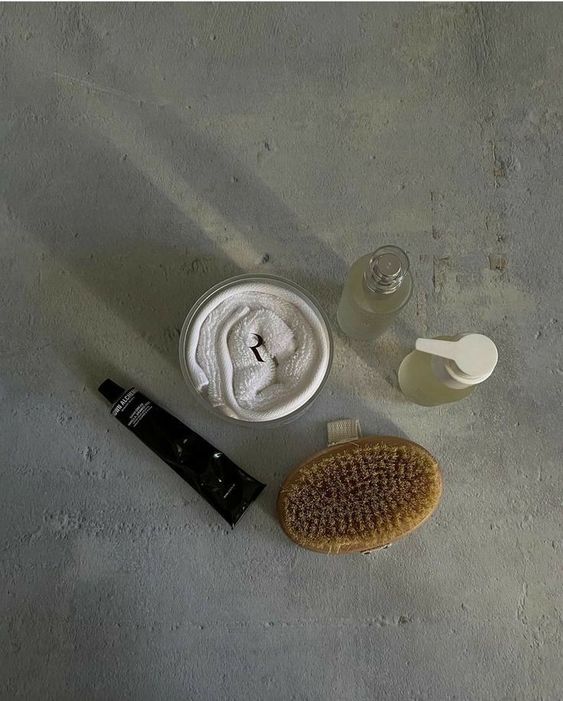
Pregnancy can be both an exciting and transformative time, but it also comes with its own share of challenges. Hormonal changes cause a wide range of physical and emotional imbalances during this stage. Such imbalances can certainly take a toll on your precious skin and manifest themselves in many different ways. Taking care of your skin during pregnancy shouldn't become an ordeal.
In this blog post, we will walk you through
skincare ingredients to avoid in pregnancy
and give you some tips on how to caress your expectant skin to keep it glowing and healthy.Understanding Your Gestational Hormones: What You Need To Know
During your pregnancy, your body endures a lot of hormonal changes. This is all part of making childbearing possible and preparing your body for labor. The hormones that play a key role in these functions are:
Cortisol: expectant women are prone to psychological distress, which causes maternal cortisol to rise two/fourfold[1]. The resultant neurotoxicity can affect fetal brain growth and development[1].
Estrogen: this term actually comprises a group of hormones that contribute to the development of female sexual characteristics[2]. Even though they are mainly secreted by the ovaries, they are also produced by the placenta to support a healthy pregnancy through and through[2].
Human chorionic gonadotropin hormone (hCG): this hormone is only produced during pregnancy, predominantly by the placenta[2]. In the first trimester, the level of the hCG hormone in the mother's blood and urine increases significantly which leads to nausea and vomiting[2].
Human placental lactogen (hPL): the name "human chorionic somatomammotropin (hCS)" also refers to this hormone[2]. The placenta produces it, as its name clearly indicates. It provides food for the fetus, as well as activates the mammary glands to promote lactation[2].
Progesterone: secreted by the placenta and ovaries, this hormone thickens the endometrium (inner womb lining) for the implantation of a fertilized ovule[2].
Thyroid hormones: thyroid disorders are pretty common during pregnancy, particularly first trimester hypothyroidism[3]. Thyroxine (T4) production and requirements are higher during this period, but there is a less-than-ideal distribution which causes imbalances in the metabolism[3].
Your body will produce signs and symptoms when your hormones go out of whack, and it is important to be able to recognize them ASAP. Many women experience mood swings and an increased risk of depression during this time[3]. Other common symptoms include headaches, difficulty sleeping, decreased energy levels, and cravings for sweet or salty snacks.
You might also experience changes in your skin including, but not limited to[4]:
- Acne
- Linea nigra (the dark line that runs from the belly button to the pubic bone)
- Darkened areas: areolas, freckles, inner thighs, labia, moles, nipples.
- Mask of pregnancy (melasma or chloasma)
- Dry, itchy skin
- Skin tags
- Spider and varicose veins
- Stretch marks
If you are experiencing any of these symptoms during pregnancy, it's important to get a full appraisal by a qualified practitioner to determine if there is a hormonal issue that needs to be addressed. Early diagnosis and treatment are key in ensuring that you and your baby stay healthy and comfortable throughout your pregnancy. We will also share some tips that will help you prevent these conditions and improve the quality of your skin.
Pregnancy Skincare Routine: Step By Step Guide
For expectant mothers, it is important to establish a
pregnancy skincare
protocol that is safe to use. The good news is that you do not need to significantly modify what you are already doing. Gentle is the keyword for a successful regimen during this special time of your life. You should also familiarize yourself with theskincare ingredients to avoid while pregnant
. Overall, these are the steps that you should follow to promote the pregnancy glow:-
Cleanse the skin twice a day with a gentle formula (pH 4.5-5.5).
-
If using a toner, make sure it is alcohol-free to help balance the skin's pH levels and keep it hydrated.
-
Layer a serum and a moisturizer that contain antioxidant, regenerative, nourishing and soothing ingredients such as AHAs, bakuchiol, hyaluronic acid, stable forms of vitamin C, peptides and niacinamide.
-
Always protect the skin from harmful UV rays with a broad spectrum sunscreen. Preferably, use a mineral-based one that is suitable for pregnant women. Always reapply every 2 hours.
-
Exfoliate your complexion 2-3 times per week with acids (preferably mild like lactic and lactobionic) and enzymes (bromelain, papain).
-
For stretch marks, it is crucial to keep the skin well-moisturized and supple with formulas that contain aloe vera, allantoin, lavender, chamomile, calendula, oats extract, panthenol, cold-pressed oils (avocado, almond, argan, jojoba, etc.), butters (cacao, cupuaçu, shea, mango, etc.), and vitamin E. Avoid scratching at all costs.
-
Most dark spots usually fade after delivery, so it makes no sense to go for a full-fledged treatment while pregnant. You might, however, keep them in check by being diligent with your sunscreen and skincare rich in acids, vitamins, and antioxidants.
-
The
pregnancy skincare for acne
should focus on oil-free formulas. Don't pick/squeeze blemishes and avoid touching your face. Change your pillowcase frequently. Gels containing the topical antibiotics erythromycin or clindamycin are considered safe. Actives like azelaic acid, benzoyl peroxide, salicylic acid (low % or natural salicylates like willow bark/wintergreen), and sulfur have been shown to be effective too. -
Drinking plenty of water and eating a balanced diet with a variety of healthy foods should never be overlooked. Experts actually agree that these habits can help reduce the risk of some hormonal imbalances. Make sure you consult with your healthcare provider before making any major dietary changes while pregnant.
-
To tackle stress, exercise regularly and find ways to relax. Yoga and meditation are excellent options. Try to take a break from your regular routine, or speak to a therapist if necessary.
-
Post pregnancy skincare
should be aimed at supporting the natural functions of your skin and correcting any imbalances/conditions. Besides their regular routine, some women might need to undergo chemical peels, laser resurfacing/LED treatments, and microneedling sessions to brighten the complexion and minimize the appearance of stretch marks.
List Of Skincare Ingredients To Avoid During Pregnancy
Certain ingredients could potentially cause birth defects, so it is best to avoid them. These are[5]:
- Aluminum chloride in elevated %
- Chemical sunscreens: octinoxate, oxybenzone, octocrylene, etc.
- Dihydroxyacetone (during the first trimester)
- Lead (comes hidden in many lipsticks)
- Certain essential oils. (anise star, aniseed, basil, cinnamon, clove, cumin, fennel, hyssop, juniper, oregano, pennyroyal, rosemary, sage, savory, sweet birch, thyme, and wintergreen)
- Formaldehyde
- High dosages of benzoyl peroxide and salicylic acid
- Hydroquinone
- Parabens
- Phthalates
- Retinoids: retinol, retinyl palmitate, tretinoin, etc. (topical and ingested).
The above are general recommendations. When in doubt, always consult your physician.
Pregnancy changes a woman's body in so many ways, but one that is highly visible is the skin. This is because it starts to change to accommodate the needs of the baby, as well as the growing placenta. We hope that this article will help you in your quest to take care of your precious skin during this very special stage of your life.
If you have any questions, do not hesitate to give us a shout via our social media platforms on Instagram, Facebook, Pinterest, and LinkedIn platforms.
References:
[1] https://bmcpsychiatry.biomedcentral.com/articles/10.1186/s12888-017-1424-x
[3] https://www.ncbi.nlm.nih.gov/pmc/articles/PMC3603018/
[4] https://americanpregnancy.org/healthy-pregnancy/pregnancy-health-wellness/skin-changes/
[5] https://www.whattoexpect.com/pregnancy/aromatherapy#unsafe




